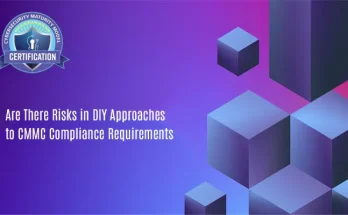Python’s versatility and readability have cemented its status as a cornerstone language for developers across various sectors in Indonesia, from burgeoning tech startups to established enterprises. However, even the most seasoned Pythonista spends considerable time on two critical, yet often tedious, tasks: debugging troublesome code and refactoring existing code for better performance, maintainability, and scalability.
Enter AI code assistants. These intelligent tools are rapidly transforming the development workflow, offering Python developers in Indonesia a significant edge in tackling these challenges. This article explores how AI code assistants are revolutionizing debugging and refactoring, empowering Indonesian developers to write cleaner, more efficient, and robust Python code.
The Ever-Present Challenges: Debugging and Refactoring
Debugging: The often frustrating process of finding and fixing errors in code. Python’s dynamic typing and often subtle runtime errors can make debugging a time-consuming detective hunt. Developers spend hours stepping through code, printing variables, and scrutinizing tracebacks.
Refactoring: The process of restructuring existing code without changing its external behavior. While essential for long-term project health, refactoring can be daunting. It requires a deep understanding of the codebase, careful planning, and meticulous execution to avoid introducing new bugs. Many developers, especially under tight deadlines, often defer refactoring, leading to technical debt that accrues over time.
For Indonesian development teams, where resources might be stretched and time-to-market is crucial, these challenges can significantly impact productivity and project timelines.
AI Code Assistants: Your Intelligent Pair Programmer
AI code assistants leverage advanced machine learning models, particularly large language models (LLMs) and natural language processing (NLP), to understand code context, identify patterns, and even generate new code. They act as an intelligent pair programmer, offering suggestions and solutions in real-time.
Here’s how they are specifically revolutionizing debugging and refactoring for Python developers in Indonesia:
1. Supercharging Debugging
- Intelligent Error Analysis: Instead of just showing a traceback, AI assistants can analyze the error message and the surrounding code to pinpoint the likely root cause. They can suggest common pitfalls or offer specific solutions based on patterns learned from vast datasets of code.
- Proactive Bug Detection: Some advanced assistants can identify potential bugs before the code is even run. By analyzing code structure and common anti-patterns, they can flag issues like unhandled exceptions, potential infinite loops, or incorrect variable usage.
- Contextual Explanations: When faced with complex errors or unfamiliar parts of a codebase, AI tools can explain what a particular piece of code is supposed to do, how an error might arise in that context, and suggest corrective actions. This is invaluable for junior developers or those onboarding to a new project.
- Test Case Generation: To effectively debug, developers often need to write specific test cases that reproduce an error. AI assistants can help generate these test cases, saving significant time and ensuring comprehensive coverage.
2. Streamlining Refactoring
- Automated Code Transformations: AI assistants can suggest and even automatically apply common refactoring patterns. This could include extracting methods, renaming variables, simplifying conditional statements, or converting repetitive code into more elegant loops or comprehensions.
- Identifying Code Smells: “Code smells” are indicators of deeper problems in the code that could hinder maintainability or scalability. AI tools can analyze the codebase and identify these smells (e.g., long functions, duplicate code, large classes), providing actionable recommendations for refactoring.
- Performance Optimization Suggestions: For performance-critical Python applications, AI can analyze code sections and suggest more efficient algorithms, data structures, or library functions. For example, it might recommend using collections.deque instead of a list for specific queue operations, or suggest vectorized operations with NumPy.
- Readability and Maintainability Enhancements: AI can suggest improvements to code style, adherence to PEP 8 guidelines, and variable naming conventions, making the code more readable and easier for other developers (and future you!) to understand and maintain.
- Impact Analysis: Before a significant refactor, developers often worry about unintended side effects. AI tools can help by analyzing dependencies and predicting the potential impact of a change, reducing the risk of introducing new bugs.
Popular AI Code Assistants for Python
Several tools are making waves, both as standalone applications and integrated within popular Integrated Development Environments (IDEs):
- GitHub Copilot: Perhaps the most well-known, Copilot (powered by OpenAI’s Codex) provides real-time code suggestions, autocompletion, and even generates entire functions based on comments or partial code. It’s excellent for both writing new code and understanding existing patterns for refactoring.
- Tabnine: An AI-powered code completion tool that learns from your code and provides highly accurate and contextual suggestions, accelerating coding and helping maintain consistent style.
- Jedi (for VS Code/Jupyter): While not a full-fledged AI assistant in the sense of an LLM, Jedi provides intelligent autocompletion, go-to definition, and refactoring support in Python IDEs, leveraging static analysis. Many IDEs integrate such tools for basic refactoring.
- Sourcery AI: Specifically designed for refactoring Python code, Sourcery identifies code smells and suggests improvements to make code more readable, maintainable, and performant. It often integrates directly into IDEs like VS Code and PyCharm.
- IntelliCode (for VS Code/Visual Studio): Microsoft’s IntelliCode offers AI-assisted development features, including intelligent autocompletion, based on understanding your code and popular open-source projects.
Benefits for Indonesian Python Developers
The adoption of AI code assistants offers substantial advantages for the growing Python developer community in Indonesia:
- Accelerated Development Cycles: Reduced time spent on debugging and manual refactoring means faster feature delivery and quicker project completion.
- Improved Code Quality: AI-driven suggestions lead to cleaner, more efficient, and less error-prone code, reducing technical debt.
- Enhanced Learning and Onboarding: Junior developers can learn best practices and understand complex code faster with AI guidance, bridging skill gaps.
- Focus on Innovation: By automating tedious tasks, developers can allocate more time to creative problem-solving and innovation, crucial for competitive tech markets.
- Consistency Across Teams: AI can help enforce coding standards and best practices across development teams, leading to more consistent and maintainable codebases.
Challenges and Future Outlook
While immensely powerful, AI code assistants are not a silver bullet. Developers must still critically evaluate AI-generated suggestions, as they can sometimes produce incorrect or suboptimal code. Concerns about code privacy and the potential for “hallucinations” (AI generating plausible but incorrect information) also need to be considered.
However, as AI models continue to improve, they will become even more sophisticated, offering deeper insights into code logic, more accurate refactoring suggestions, and perhaps even automated bug fixing. For Python developers in Indonesia, embracing these tools is not just about keeping up; it’s about gaining a significant competitive edge in the fast-paced world of software development. The future of Python coding is undoubtedly collaborative, with AI code assistants playing an increasingly indispensable role.





